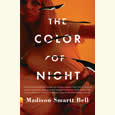Report from Chattanooga, Day One
At the Conference on Southern Literature, Chapter 16’s Maria Browning is having a fine time
April 15, 2011 Wandering around downtown Chattanooga Wednesday night, looking forward to the first day of the Conference on Southern Literature, I couldn’t resist stopping to pay my respects at the empty storefront that once housed Rock Point Books. It was a charming little independent bookstore, but its charm was not enough to save it from the downward spiral of the publishing business and the economy in general. I was saddened to think about my last visit there, when I stumbled across a wonderful book (Thomas Robisheaux’s The Last Witch of Langenburg) that I would never have found on Amazon or amid the piles of mindless fluff at Borders. How ironic, I thought, to be attending a conference organized by the Fellowship of Southern Writers—“the leading literary event in the South”—in the same city that could not sustain Rock Point Books.
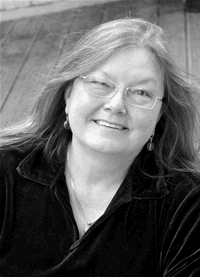 Things looked considerably brighter Thursday morning at the conference, which is held in the beautifully restored Tivoli Theatre. There was a nice-sized crowd of early arrivals and plenty of them were, like me, dropping money on the books for sale in the lobby. The conference certainly lives up to its reputation as an event with ample opportunity for mingling with writers. As I waited for the first session on the program, the seats next to me were taken by Allan Gurganus, Dorothy Allison, and Josephine Humphreys. They chatted with me and with the folks sitting in front of us. Madison Smartt Bell and Tony Earley were seated a few rows away.
Things looked considerably brighter Thursday morning at the conference, which is held in the beautifully restored Tivoli Theatre. There was a nice-sized crowd of early arrivals and plenty of them were, like me, dropping money on the books for sale in the lobby. The conference certainly lives up to its reputation as an event with ample opportunity for mingling with writers. As I waited for the first session on the program, the seats next to me were taken by Allan Gurganus, Dorothy Allison, and Josephine Humphreys. They chatted with me and with the folks sitting in front of us. Madison Smartt Bell and Tony Earley were seated a few rows away.
Elizabeth Spencer, along with director Kevin McCarthy and producer Sharon Swanson, took the stage at 10 a.m. to discuss Landscapes of Heart, a documentary about Spencer’s life and work. They shared stories about the making of the film, and about the well-traveled McCarthy’s first encounter with Mississippi, which Spencer described as “probably the most foreign country he’s ever been to.” McCarthy himself said he has developed a love-hate relationship with the state, and that the toughest thing about making the film was keeping up with the 89-year-old Spencer, who remains amazingly lively and elegant.
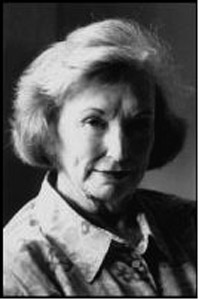 Landscapes of the Heart was screened immediately after the panel discussion, and it would certainly fascinate any Spencer fan, as well as anyone interested in what life was like in pre-civil-rights Mississippi. The film captures some of the grace and courage that is so obvious in Spencer’s memoir. Although it touches on the highlights of her literary career and her friendship with Eudora Welty, it focuses largely on her early life in Mississippi and the many ways it shaped her as a writer.
Landscapes of the Heart was screened immediately after the panel discussion, and it would certainly fascinate any Spencer fan, as well as anyone interested in what life was like in pre-civil-rights Mississippi. The film captures some of the grace and courage that is so obvious in Spencer’s memoir. Although it touches on the highlights of her literary career and her friendship with Eudora Welty, it focuses largely on her early life in Mississippi and the many ways it shaped her as a writer.
In the afternoon, poet James Allen Hall received the George Garrett New Writing Award and gave a terrific reading of two poems, including “A Fact Which Occurred in America,” a rich, poignant meditation on the intersection of race, history, and sexuality.
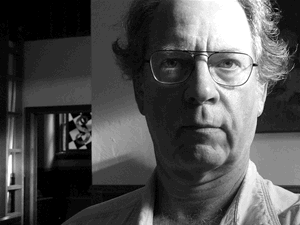 Next up was a panel featuring new members of the Fellowship of Southern Writers, including Ann Patchett, Jayne Anne Phillips and Padgett Powell. Percival Everett—a fascinating and provocative writer—was originally scheduled for this panel but didn’t make it. That was a disappointment, but on the plus side, the remaining three had time to read longer passages from their work. Patchett treated the audience to a wild scene from her forthcoming novel, State of Wonder. There was something a little incongruous about the quiet Patchett delivering a tale about mortal combat with an Amazonian serpent, but she pulled it off pretty well (after first apologizing for the use of the f-word in the dialogue). Jayne Anne Phillips took things in a completely different direction with a beautiful, poetic passage from the much-lauded Lark & Termite, and Padgett Powell changed tack yet again with a sample of The Interrogative Mood, a deliberately absurd book composed entirely of questions. His reading was actually a set-up for the story of his funny but not-so-friendly correspondence with cartoonist R Crumb.
Next up was a panel featuring new members of the Fellowship of Southern Writers, including Ann Patchett, Jayne Anne Phillips and Padgett Powell. Percival Everett—a fascinating and provocative writer—was originally scheduled for this panel but didn’t make it. That was a disappointment, but on the plus side, the remaining three had time to read longer passages from their work. Patchett treated the audience to a wild scene from her forthcoming novel, State of Wonder. There was something a little incongruous about the quiet Patchett delivering a tale about mortal combat with an Amazonian serpent, but she pulled it off pretty well (after first apologizing for the use of the f-word in the dialogue). Jayne Anne Phillips took things in a completely different direction with a beautiful, poetic passage from the much-lauded Lark & Termite, and Padgett Powell changed tack yet again with a sample of The Interrogative Mood, a deliberately absurd book composed entirely of questions. His reading was actually a set-up for the story of his funny but not-so-friendly correspondence with cartoonist R Crumb.
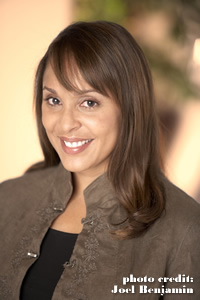 The last panel of the day brought together Natasha Trethewey, Ron Rash, Bobbie Ann Mason, and Wendell Berry for discussion of “A Writer’s Response to Environmental Threats—Preserving the Southern Landscape.” The general consensus among the writers seemed, not surprisingly, to be that the landscape was well nigh doomed without some radical change in our culture. Mason spoke of finding it impossible to write about the landscape in the sweeping, distant way of earlier writers because of destruction to which it’s been subjected. “The setting is no longer the backdrop,” she said. “It is the story itself.” Wendell Berry got a round of applause when moderator Jill McCorkle mentioned his recent weekend sit-in at the Kentucky governor’s office, and he spoke eloquently of the need for a new way of regarding work and productivity in relation to the land. “Our economic life,” he said, “is virtually absolutely destructive.” He went on speak of the necessity of living within the limits of what nature can tolerate, and observed that we’re “not going to be able to engineer our way out of our dilemma.”
The last panel of the day brought together Natasha Trethewey, Ron Rash, Bobbie Ann Mason, and Wendell Berry for discussion of “A Writer’s Response to Environmental Threats—Preserving the Southern Landscape.” The general consensus among the writers seemed, not surprisingly, to be that the landscape was well nigh doomed without some radical change in our culture. Mason spoke of finding it impossible to write about the landscape in the sweeping, distant way of earlier writers because of destruction to which it’s been subjected. “The setting is no longer the backdrop,” she said. “It is the story itself.” Wendell Berry got a round of applause when moderator Jill McCorkle mentioned his recent weekend sit-in at the Kentucky governor’s office, and he spoke eloquently of the need for a new way of regarding work and productivity in relation to the land. “Our economic life,” he said, “is virtually absolutely destructive.” He went on speak of the necessity of living within the limits of what nature can tolerate, and observed that we’re “not going to be able to engineer our way out of our dilemma.”
Friday’s schedule features appearances by—among others—Claudia Emerson, Kate Daniels, and George Singleton, along with the keynote address from Dorothy Allison. Stay tuned.


